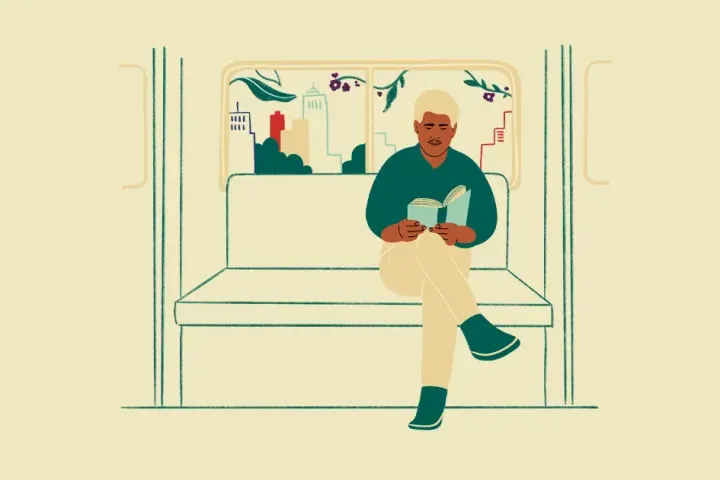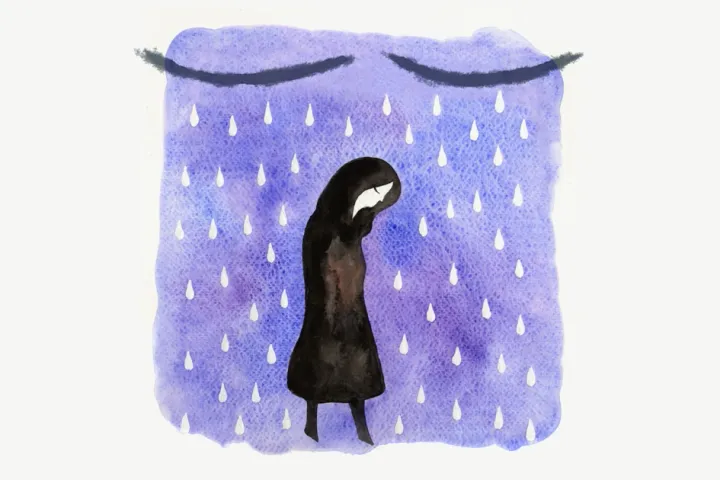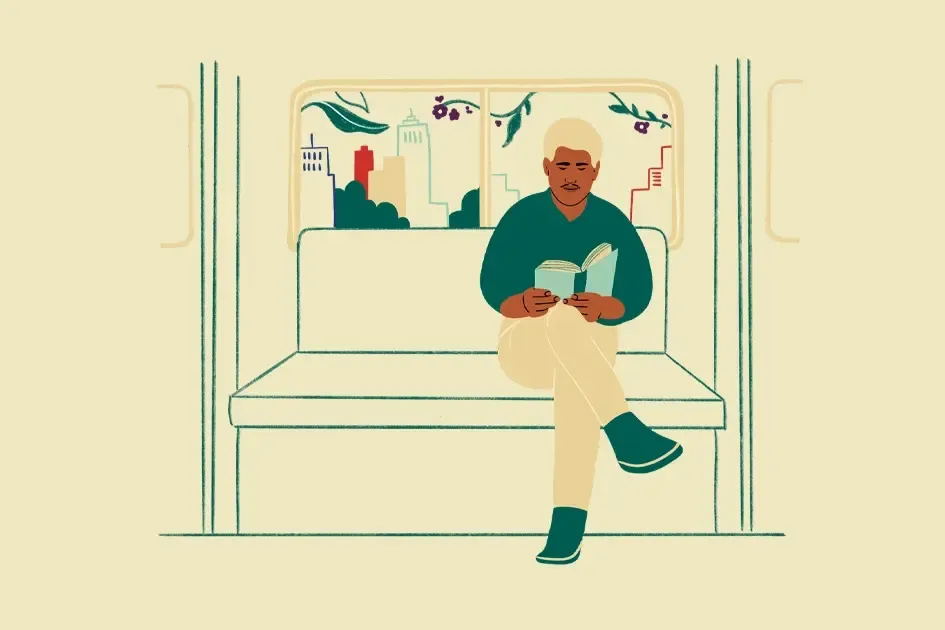I wheeled Mom to the dining room and found her spot at the table next to Nancy, June, and Trudy. As I locked the wheelchair and helped her put on a sweater, the women began talking about what they were having for dinner. No one could remember.
“Well, I hope it’s good,” I said, as I kissed the top of Mom’s head and prepared to leave.
“Not likely,” June replied, grinning from ear to ear. The other women laughed.
“Hope it’s not as bad as lunch was,” Mom said, her voice garbled from a stroke four years ago. She repeated it twice, and I finally understood. I said it again loudly for the other women, and they giggled.

“You ladies aren’t causing trouble again, are you?” one of the nurses joked as she filled their water glasses. “They couldn’t stop laughing during lunch today.”
“Trudy,” Mom said clearly enough we all understood.
“So Trudy’s the troublemaker?” I asked, flashing a smile in her direction.
“Sometimes,” Trudy agreed. “Your mom and I like to laugh.”
“Well, stay out of trouble then,” I said, leaving the women still snickering.
The hours I spend with my mom at her nursing home have given me a poignant picture of what Jesus means when He says, “Blessed are those who mourn, for they shall be comforted.” Here, at the end of life, the weight of sin and the consequences of sins converge. Frail bones and thinning skin are just the covering for the losses, regrets, and failures these residents are now faced with in the winter of their lives. Some groan through therapies and medicines; others cry and scream, trapped in forgetfulness and fear. Even those with relative physical and mental health require assistance dressing, taking medicines, and walking to meals.
The groans I hear in the nursing home, though, are really the same groans I hear in schools, in shopping malls, and in business offices. As Paul says in Romans 8:23, we’re all groaning “within ourselves, waiting eagerly for our adoption as sons, the redemption of our body.” In the hallways where sick and elderly people live, the groans are just a bit louder because the longing for redemption is a little stronger. Mom and her friends mourn and grieve all that’s been lost, not just for themselves, but for the families who visit them, for the friends who do not, and for the world that has left them behind.
Yet the faith I find here is formidable. Even as they grieve, they do so as those who still have hope, pray, read the Bible, share with each other, and try to reach out to those who serve them. And most importantly, they laugh—by finding joy, even humor, in their shared fate.
Throughout Scripture, laughter expresses a variety of emotions: joy (Psalm 126:2), scorn and mocking (2 Chronicles 30:10), foolishness (Proverbs 29:9), shamefulness (Jeremiah 48:26), pity or disgust (Psalm 2:4), even disbelief, as in Genesis 17:16-17. When God told Abraham that Sarah would have a son, the old man “fell on his face and laughed.” It was the first recorded laughter in Scripture. “Will a child be born to a man one hundred years old?” he asked. “And will Sarah, who is ninety years old, bear a child?” The next documented laughter was Sarah’s, when a few days later she overheard the Lord tell Abraham that she would have a child by that time next year. “After I have become old, shall I have pleasure, my lord being old also?” (Genesis 18:12).
Research suggests that laughter helps us endure hardship, even physical pain.
But disbelief might be just one reason Abraham and Sarah laughed. Science suggests there might be another reason. It had been a stressful few years for the couple: moving from Ur to Canaan, bargaining and fighting for land, managing flocks and servants, and of course, dealing with the aftermath of Sarah’s work-around with Hagar. What if the laughter was less disbelief and more stress relief?
Who hasn’t been to a funeral or convocation when someone starts laughing? I have; in fact, I’ve been the one laughing. Though it’s awkward, according to Jordan Raine, a PhD researcher at the University of Sussex, untimely laughter “could be the brain’s way of diffusing tension, or a defensive coping mechanism when you’re faced with something traumatic or distressing.” In fact, research suggests that laughter helps us endure hardship, even physical pain. According to Scientific American, “laughter triggers [a] release of endorphins like beta-endorphin, and elevates pain thresholds.” Laughter also “can ease a stressful experience, probably by counteracting the effects of cortisol and adrenaline,” writes Ben Cramer in Prevention Magazine.
It’s probably why Mom and I seem to laugh a lot these days.
“Don’t laugh, Mom,” I said on a recent outing, helping her to the car. I could feel the giggles even before I heard them.
Since Mom’s stroke, uncontrollable laughter distracts her and causes her to lose her balance. As I lifted her from the wheelchair and pivoted her around toward the car, I feared a laughing fit might take us both to the ground.
“Okay, okay,” she said, trying to breathe a little deeper.
“Think of something sad,” I suggested, and before she could stop laughing, I had her safely in the seat. As I closed the door, I let out a chuckle of my own, relieved.
“If I don’t laugh, I’ll cry,” Mom said, once I got her buckled in. And I knew exactly what she meant.

I’d just helped Mom to the bathroom at McDonald’s after driving around 15 minutes trying to find a suitable rest stop. I’d hoped to find a handicapped bathroom in a public building at the local college, only to discover that school wasn’t back in session. We’d stopped at a Starbucks, where the large restroom would have worked well, but when I accidentally set off the fire alarm during my reconnaissance mission, I was too embarrassed to go back in.
After our stop at McDonald’s, we finally arrived at the party we’d driven 90 minutes to attend, only to discover I’d gotten the time wrong by three hours. If we waited, Mom wouldn’t be back in time for supper.
“We can stay if you want,” Mom said, eyes closed behind her sunglasses because it was so bright out.
“But do you want to?” I asked, sweat dripping down my back.
“No, not really,” she admitted. I sighed with relief, then felt guilty.
“I’m really sorry,” I said over and over, tears filling my eyes. “I don’t know how this happened.”
“Don’t cry,” she said. “Let’s don’t cry.”
“At least we have a good story to tell,” I said finally, wiping tears from my face. “And I’m never going back in that Starbucks.”
Suddenly, we were both laughing again.
In the first 12 verses of Jesus’ Sermon on the Mount, He uses the word makarios nine times. Often translated as “blessed” or “happy,” the term means divine favor, or “the good life,” as the authors of the New Bible Commentary explain it. While most of Jesus’ descriptions of the good life don’t sound all that good to us—things like poverty, mourning, hunger, persecution, and insults—it’s obvious that life in the kingdom isn’t what we expect. Each time Jesus mentioned one of the difficult aspects, He followed it up with the resulting positive. For instance, when the disciples hungered and thirsted for righteousness, they would be satisfied. When they were merciful, they would be shown mercy. When they mourned, they would be comforted.
Some scholars believe mourning (Matthew 5:4), from pentheó meaning “to mourn, or lament,” is used to describe all types of grief, as when John’s disciples asked Jesus why His disciples weren’t fasting. “The attendants of the bridegroom cannot mourn (pentheó) as long as the bridegroom is with them, can they?” He asked (Matthew 9:14-15). The word also is used to describe Jesus’ disciples following His crucifixion, when they were mourning (pentheó) and weeping (klaió). Pentheó can also mean “feel guilt,” which might refer to the grief we feel when we are confronted with the reality of sin. In other verses throughout the New Testament, the word implies this same sense of regret or loss because of sin. (See 1 Corinthians 5:2.)

The consequence of pentheó, Jesus said, is parakaleó, or comfort. It’s the root word of paraklētos, which is used throughout the New Testament to refer to the Holy Spirit as our Comforter. For instance, in John 14, Jesus told the disciples He’d send the Holy Spirit, or the Comforter, to help them with their grief once He was gone. The Holy Spirit also brings comfort when we mourn our sin, sealing us for salvation (Ephesians 1:13). Interestingly, when Luke recounted his own version of Jesus’ “Good Life Sermon,” he didn’t use the words mourning and comfort. Instead, he said, “Blessed are you who weep now, for you shall laugh” (Luke 6:21).
There’s a lot to mourn at the nursing home where Mom lives. At least once or twice a month I arrive to find another room empty; death feels so common in that place. Other days Mom herself seems out of sorts, exhausted by a lack of sleep or frustrated over some breach in the daily schedule. I do what I can to address the issues but often find myself in tears by the time I get home.
Yet there’s a lot to laugh about, too. I think of one rainy Sunday afternoon when my husband and I were visiting Mom. We were talking about the weather, and she began crooning: “I’m singing in the rain, just singin’ in the rain.”
I joined in with the lyrics I knew, and within a few seconds, Steve had pulled up a YouTube video of the original musical with Gene Kelly’s song and dance routine. I began dancing around Mom’s tiny room, holding my pretend umbrella as the three of us continued to belt out the lyrics. When Steve stood and pretended to tap dance, the three of us lost it, laughing loudly and without restraint.
When I walked out into the hallway a few minutes later, the nurses asked, “What’s going on in there? Is everything okay?”
“Yeah, we’re just laughing,” I said, and they nodded knowingly.
It makes me think of King Solomon, who in his own last days wrote these words of wisdom: “There is an appointed time for everything. And there is a time for every event under heaven … A time to weep and a time to laugh; a time to mourn and a time to dance” (Ecclesiastes 3:1; Ecclesiastes 3:4).
As I read it now, King Solomon’s words sounds a lot like Jesus’ description of the Good Life—a strange mingling of mourning and comfort, where weeping is blessed and laughter will always follow.
Illustration by Keith Negley





